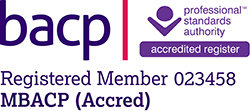Assertiveness is when we express our anger in a healthy way. It is a healthy expression of anger. In our culture, assertiveness could be seen as teaching other people how to treat us, hear us and respect us without disrespecting them. Have you ever been in a job and gone to pay for something and the attendant has not spoken to, given you any eye contact, no please or thank you, no acknowledgement of your existence. This could lead us to a feeling of shame – we have not been seen/noticed, i.e. “I am not important.” These situations arouse an angry feeling in me – “show me some respect will you?”
If we do not acknowledge that feeling straight away it either goes inward (passive anger) and it will come out later or outward (aggressive anger) on someone who did not deserve it.
The core of healthy anger is to be able to establish physical and psychological boundaries in which we can express what is uncomfortable or unacceptable. It is being able to express your truth and what you want, without verbally or physically attacking others or yourself. This is a sign of emotional fitness/awareness.
It is about standing your ground and stating what you need to say. If you feel that someone has been rude to you or insulted your intelligence you may be thinking, “Please don’t treat me as if I am thick” and feeling belittled. The way you could handle this is to say to the person “I did not like the way you treated me just then. I felt very small and as if I was thick.” The person may not know what to say because we are not usually assertive and stand our ground in these situations. Normally we just walk away and mutter angrily to ourselves.
However, it is not really about what the other person thinks or says. You have said what you needed to say and will go away feeling at ease within yourself. You have not attacked the other person (verbally or physically), all you have done is stated how you felt when they belittled you. What they “do” with what you have said is up to them. They may say they are sorry or they may not say anything. You are not stating how you feel to help them rather you are doing it for you.
Notice the language I used. I used “I felt …”. I used “I” statements, saying how they made me feel. I could have said “You made me feel.” If you use this language you are putting yourself in a position where the other person can argue with you. “No, I didn’t, Yes, you did”, etc.
To be assertive means we have to be confident in ourselves. The only way we can get confident in a situation though is to put ourselves in those situations until we become confident. It is like any skill we want to learn – learning to ski, ride a bike, we have to keep trying until we can do it, no matter how many times we fall over.
Often we need to be set boundaries to help us to protect ourselves from others. In order to start putting these boundaries in place we need to start saying “No” to people. For some reason we find this really hard to do. It does not come naturally to use. It can lead us to feeling that we are letting people down, that they won’t like us or won’t ever ask us to do something for them in the future.
However, we can end up taking on so much and then feel as though we can’t cope or people are using us. Being able to say “No” is about looking after ourselves and not taking on everything everybody throws at us. It is being able to stand up for ourselves and only doing/taking on what we want to.
Saying “No” can be so difficult though.
We can help ourselves by having some ready thought up phrases we can use. One of the easiest ones to use to get out of tight spot and feeling you have to give an answer there and then is “Can I get back to you on that?” You don’t need to say anything more than that, no reasons or excuses; just “I will get back to you.” This buys you some time to think about whether you want to do what they have asked. It gets you out of that panicking feeling and thinking “I have to give them an answer now.”
If your gut reaction to the request is “no” then you have your answer. You are not going to do it. After some thought you think “No” you don’t want to do something then you don’t have to.
So that’s the easy bit, I hear you say… How do I tell them?
If I say this they will think this or that…
Being assertive is about looking after you and making sure that your needs are met and being able to say this in a way that respects the other persons thoughts, feelings, opinions and beliefs.
The most important word is being assertive is one of the smallest words in our language but it is one what we all struggle to say – No.
Below are some examples of how to say “No” in different circumstances but you can adapt them for your own situation. They need to come naturally so you may want to change them to fit the way you speak. You can always practice them in your bedroom so they feel a bit more natural.
- I would love to help you out but given my schedule I would not be able to get this back to you for couple of weeks. If you would like to have it done before then I suggest you ask ……
- I appreciate you thinking of me and I’m honoured by the request. But unfortunately, I don’t have the time to give this my best right now. I think you would benefit from finding someone who can devote more time and energy to this project.
- I would love to help you out but I have already said I would help ……………….. with her shopping and it is taking me all my time. It wouldn’t be fair to them not to help them now I have said I would. Thanks for your understanding.
- I’m in the middle of several other projects/commitments right now.”
Don’t be afraid to tell people when you’re busy. Most will respect your schedule and find another way to fulfil their requests for help. You shouldn’t be expected to drop tasks you’ve already committed to in order to complete new ones.
- “I need to focus on my family and their needs at the moment.”
If you’re going through a difficult time in your life that requires your attention don’t hesitate to refuse taking on extra requests. You don’t have to explain your specific reasoning for saying “no”; just indicate that you can’t help them at the moment.
- When someone tells you all their worries and concerns (trying to emotionally drag you in) try saying something like “Wow. I can really understand how hard that would be.” (Then say nothing more—just nod, smile, and release the problem when you walk away.)
You are not being rude or telling them not to ask in the future but stating what you have on at the moment and how you can’t help them. The word “No” is the smallest word in our language and yet we find it so hard to use it.
I have concentrated here on the word “no” but assertiveness is not always about just saying no. There are other aspects to it. I will put a few other ideas up on Facebook for you to look at.
I hope this helps and good luck.

I can be contacted by
- Email – ursula@counsellinginblackpool.com
- Phone – 07821 691888
- Website – www.counsellinginblackpool.com


I like the helpful information you provide in your articles. I’ll bookmark your blog and check again here frequently. I am quite sure I will learn plenty of new stuff right here! Good luck for the next!
I need to to thank you for this good read!! I certainly enjoyed every bit of it. I have you saved as a favorite to look at new things you postÖ
What i don’t realize is in reality how you’re not really much more neatly-liked than you may be right now. You are so intelligent. You already know thus considerably in terms of this subject, made me in my opinion consider it from so many various angles. Its like women and men don’t seem to be fascinated until it is one thing to accomplish with Lady gaga! Your own stuffs nice. All the time handle it up!
Great post. I used to be checking continuously this weblog and I am impressed! Very helpful information specially the ultimate section 🙂 I take care of such information a lot. I was seeking this particular information for a long time. Thanks and best of luck.